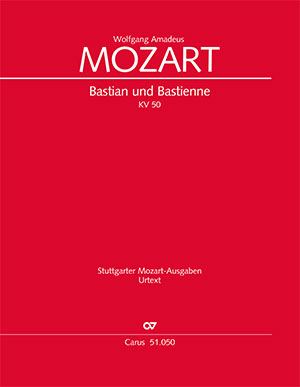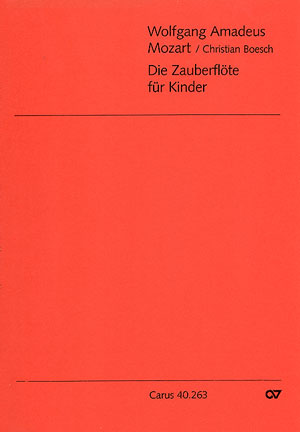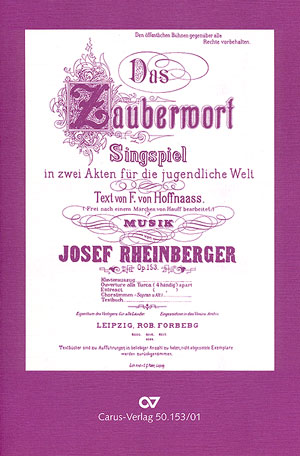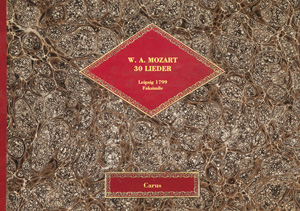
Bastien und Bastienne
KV 50, 1768
The story of Bastien und Bastienne is based on the musical pastoral Le Devin du Village by Jean-Jacques Rousseau. The play was hugely popular in paraphrase and translation and entered the repertoires of travelling companies and children’s theaters. A shepherd succumbs to the enticements of the lady of the castle and tries to abandon his beloved. The village soothsayer appeals to his conscience and advises the abandoned Bastienne to feign coyness until Bastien shamefacedly returns to her. Mozart’s version, composed in Vienna in the summer of 1768, is based on a text by Friedrich Wilhelm Weiskern that had been in existence since 1764. On his return to Salzburg, he undertook an ultimately unfinished revision of the work, improving the textual underlay and replacing the spoken dialogue with recitative. He also changed the vocal register of Colas and probably that of Bastien as well. The Carus edition is the first to treat these two versions separately.
Purchase
Additional product information
-
Composer
Wolfgang Amadeus Mozart
| 1756-1791As the son of the deputy Kapellmeister to the Salzburg Prince-Archbishop, Mozart was constantly surrounded by church music in his youth. On his travels Mozart became familiar with Italian church music, and later in Vienna he studied the works of Bach and Handel. After moving to Vienna he was faced with the new challenges of composing opera and piano concertos, and significantly the “C Minor Mass” KV 427, the greatest sacred work of the first Vienna years, remained unfinished. The last period of his life again shows a change of direction to church music: Mozart successfully applied to succeed the terminally ill Leopold Hoffmann as Kapellmeister at St Stephen's Cathedral, but he was unable to take up the position as he died before Hoffmann. A gem such as the “Ave verum” KV 618 and the incomplete Requiem KV 626 give us an idea of what Mozart might have achieved as a composer of sacred music if he had taken up this important position. Personal details
-
Editor
Ulrich Leisinger
Frequent questions about this work
 There are no questions and answers available so far or you were unable to find an answer to your specific question about this work? Then click here and send your specific questions to our Customer Services!
There are no questions and answers available so far or you were unable to find an answer to your specific question about this work? Then click here and send your specific questions to our Customer Services!









